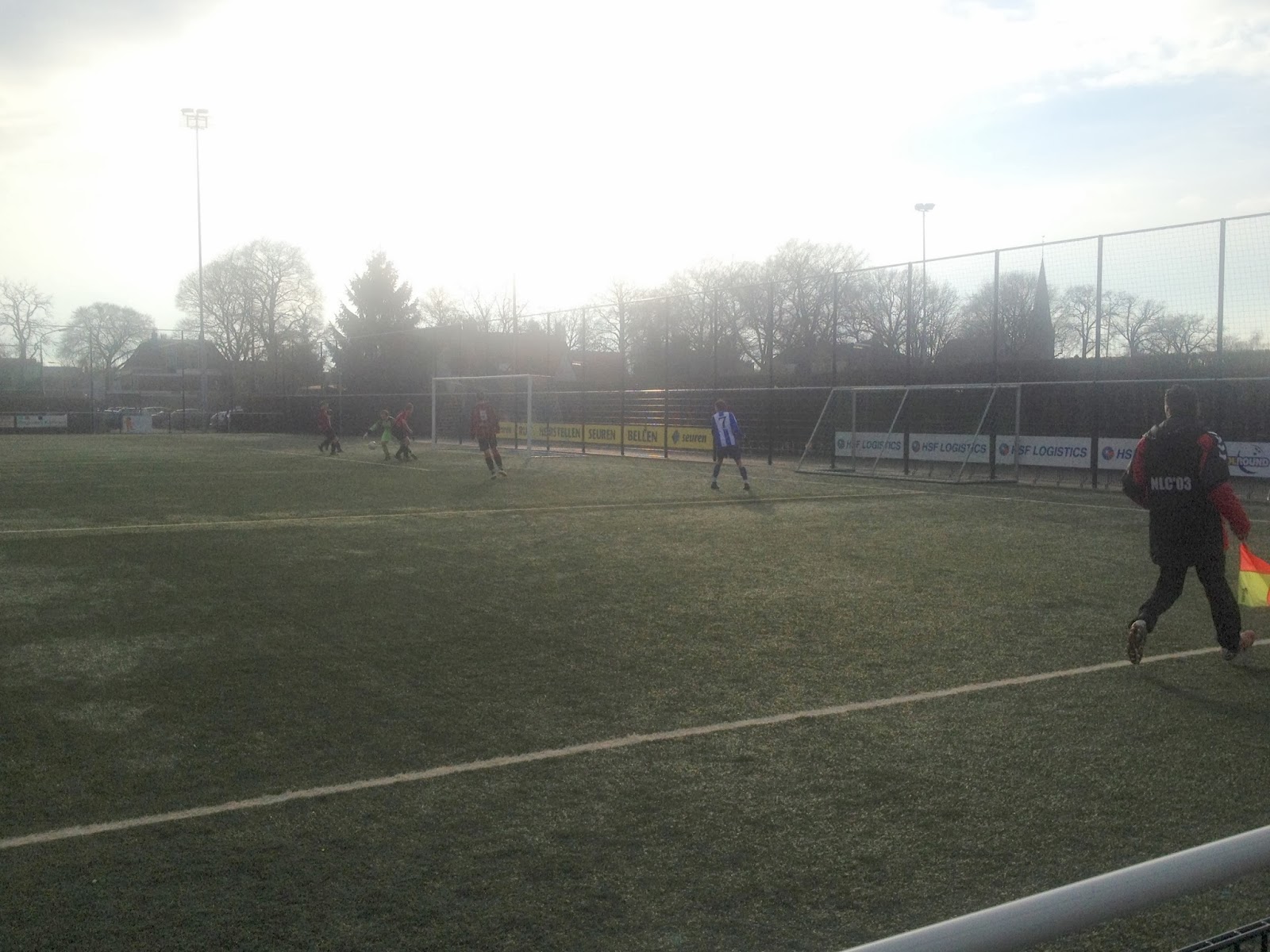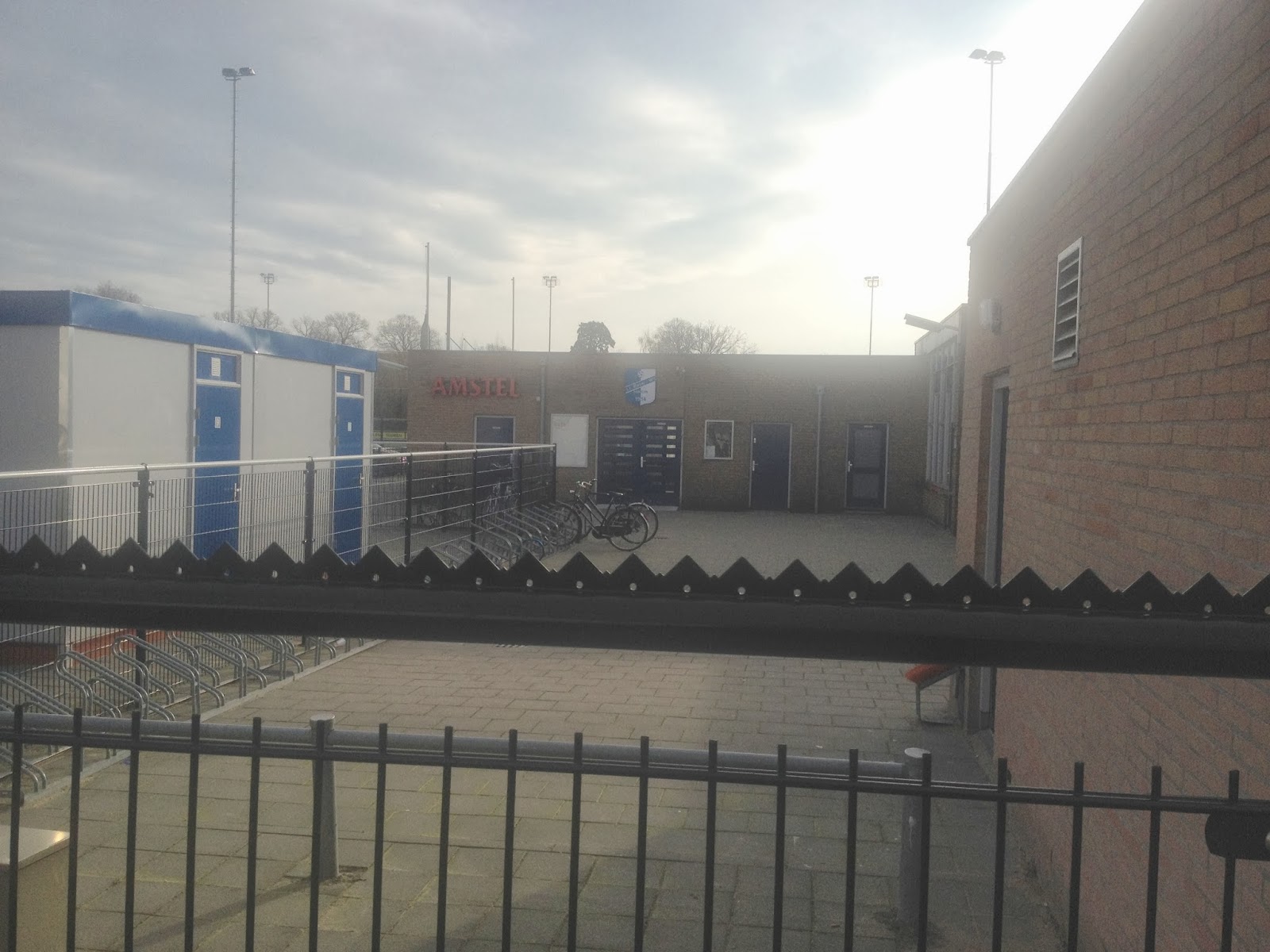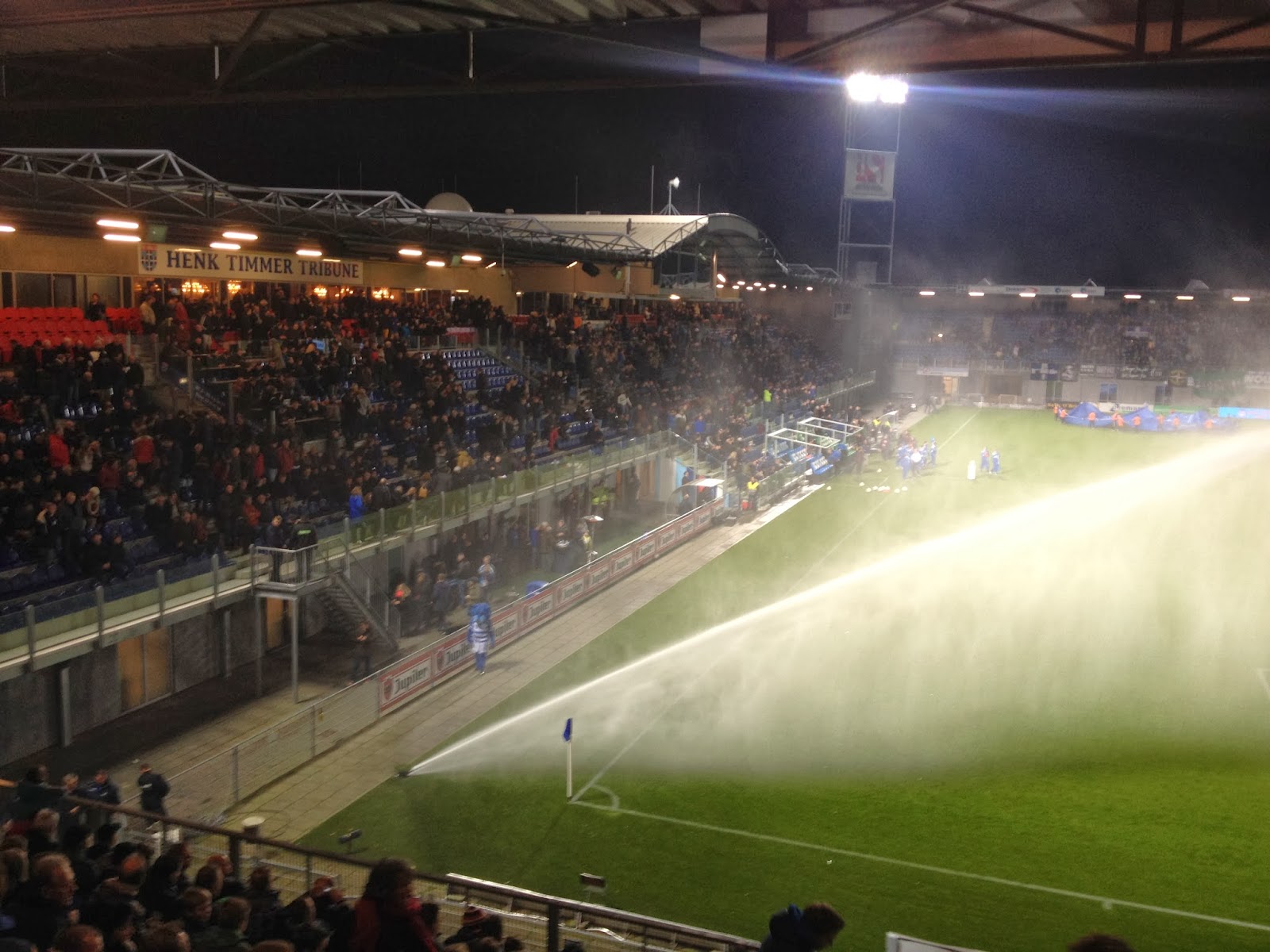Nijmegense Eendracht Combinatie, or NEC as the club are more commonly known are a professional football club from the city of Nijmegen, which is located near to the German border in the east of The Netherlands.
Eendracht were formed on the 15th November 1900, going on to merge with Nijmegen in 1910 to form NEC. The club were the domain of the working class, whereas the game at the time was quite elitist, with neighbours Quick 1888 amongst others created by industrialists and the middle class.
Eendracht (meaning unity) had been successful despite having little money. The small subscriptions went towards buying a new football from time to time. The Nijmegen club had been formed by those feeling out of place at Quick.
Gradually the club found its feet and purchased some land on Hazenkampseweg to build their own base. Membership grew but the team was denied promotion to the top level of football in the east of the country. To reach the first division, clubs had to win play off matches against other regional winners. NEC missed out in 1928, 1929, 1931, and 1934.
Finally in 1936 NEC reached the top level, going on to win the East title in 1939. NEC ended third in the title deciders behind Ajax and DWS. On the resumption of football after World War Two, NEC won consecutive East titles, becoming one of the foremost clubs in the country.
Professional football arrived in Holland in 1954, but NEC was not in the best of states at the time. They only just avoided being left behind in the amateurs at the last minute as the club moved into the Goffertstadion or De Goffert as the locals call it. In the early 60’s the club began to grow as the local authority recognised the importance of the club to the city.
A promotion was won in 1963, before NEC reached Eredivisie for the first time in 1964. The next few years saw the club progress as a young side including Jan Peters and Frans Thijssen pulled in full houses regularly. The team reached the 1973 KNVB Cup Final as strong favourites, but NAC Breda pulled off a shock by winning 2-0 at De Kuip.
The star players were sold on and crowds began to drop. NEC were relegated in 1974 before climbing back. Once more NEC went down in 1983, but still reached the KNVB Cup final once again. Ajax won both games 3-1 to take the beaker 6-2 on aggregate. Yet a loophole in the competition meant that NEC played in the European Cup the following season. FC Barcelona ended their run
By 1994 NEC had been relegated and promoted twice more as they went into the final of another KNVB Cup. On this occasion they went down 2-1 to Feyenoord at De Kuip. In the clubs centenary year they made it four losing finals out of four. This time Roda JC did the damage at De Kuip in Rotterdam breaking the hearts of the 20,000 expectant fans from Nijmegen. At the same time De Goffert rebuild was completed.
The end of the 2003 season saw unparalleled joy come to NEC as the team finished fifth in Eredivisie thanks to a late Jardr Simr goal at Waalwijk meaning that the club qualified for the UEFA for the following season, without help from anyone else with Dutch legend Johan Neeskens as head coach.
In 2008 under Mario Been the team went on a remarkably thirty one game unbeaten run to reach the play offs for European football, where the team succeeded once again to qualify for the Europa League. Dinamo Bucureşti were defeated before NEC qualified to the knock out stages from a group including Tottenham Hotspur, Udinese, Spartak Moskow and Dinamo Zagreb. The run ended in the knock out stages against Hamburger SV.
Following Been’s reign, a succession of managers came and went at De Goffert, before Anton Janssen was appointed in August 2013.
NEC will play in Eredivisie in the 2013-14 season.
My visit
NEC 3 ADO Den Haag 1 (Sunday 19th January 2014) Eredivisie (att: 10,550)
My fourth match of the long weekend saw me in the beautiful old city of Nijmegen. After catching the train from Zwolle, dropping off my bag and then visiting the homes of SCH, SV Blauw Wit and Quick 1888 I was tiring. It was somewhat of a relief when I saw the growing crowds heading towards the large Goffertpark.
I had arranged my ticket in advance, through a very helpful member of the club staff via email communication. However, I did still have to collect it from the information point by the main entrance. As I couldn’t even see the stadium through the park and I had no idea of its lay out I was still a trifle apprehensive.
There was no need to worry. My luck was in as the paths led straight to where I needed to be. A few minutes later I had my ticket for a reasonable $23. I couldn’t see anyone selling programmes, but that could wait until later. Kick off was fast approaching and I wanted to get inside.
Once more fortune was on my side. The decent programme was free inside and left by the bins. I wasn’t sure where my seat was so I walked down the steps to the moat where the staircases led upstairs. However, I saw an opportunity to get a real feel for the occasion beforehand as I could walk right up to where the players crossed the moat before going up to the pitch.
To see the video of that, and some action, click on:
http://www.youtube.com/watch?v=obWpBzA9hfs&list=UUuIHNmGQ2lRbtwwp7tLYDDQ&feature=c4-overview
A steward put me right when he saw my confused look and soon I was in my seat high up in a corner of the stadium, with the notorious Den Haag fans further along behind the goal. I really liked De Goffert. It was relatively small but neat, with a single tier of raised covered seats separated from the pitch by the moat. The only obtrusive fencing was the netting keeping in the away fans and stopping any silly throwing of missiles in either direction. A nice touch was the heaters blowing down hot air from the roof.
The game was a real basement battle with both teams in the bottom three before play with the hosts occupying bottom spot. NEC lined up with Michael Higdon as centre forward. In a remarkable coincidence I’d seen him score a hat trick for Motherwell against St Johnstone on the corresponding weekend the season before. He looked like he’d enjoyed a good Christmas, although he also used his strength to good effect throughout the match.
On eighteen minutes NEC were awarded a penalty. The offence from visiting skipper Danny Holla looked to have been just outside the box. The visiting Robert Zwinkels keeper saved the kick. With just over half an hour on the clock Kevin Conboy put NEC ahead with a fine curling free kick. Two minutes later the scores were level as Den Haag were awarded a penalty of their own. Holla scored to send the away fans wild with delight. Right back Marnick Vermijl had given the spot kick away but he soon made up for it by restoring Nijmegen's lead by scoring off the far post a couple of minutes later. It had been a tremendous first half.
By now I was gradually feeling normal after my heavy night, so I got stuck into the snacks and coffee on offer by using the token system. I felt seriously rough when the bloke next to me had bought a beer in the first half. My sausages and coffee went well on its way to restoring me.
The second half wasn't as action packed, but NEC were full value for their lead. With twenty five minutes left Rene van Eijden made the game safe with an excellent looping header. The majority of the away fans made their way out to sit on the buses in the compound, to much mocking from the NEC fans as their side saw out the game.
I had really enjoyed the game and atmosphere in such a tight stadium, but still wanted more. I had an amateur game in my sights in nearby Wijchen, but first had to find the bus stop, while hoping the players of VV Alverna and LONGA ‘31 would save some entertainment until my arrival!
























































